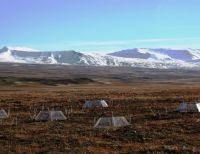Denmark needs to invest heavily in the expansion of renewable energy systems and establishment of so-called Power-to-X plants converting renewable electricity into transportable, storable forms of energy such as hydrogen, ammonia and methanol.
However, establishing a carbon-neutral energy sector can lead to conflict and local resistance when large plants are built all over the country.
Citizens and local stakeholders can feel neglected, and rightly so, when public authorities and private corporations do not engage with them before building large plants for energy production.
Simon Westergaard Lex
A new research project based at the University of Copenhagen and co-funded by Innovation Fund Denmark will address this risk in close cooperation with partners at energy companies. The aim is to develop and test a model for how private corporations and public authorities can successfully engage citizens and local communities in the transition towards green energy.
Based on previous studies, the researchers estimate that local resistance currently puts a stop to 10-15 per cent of green energy projects. Therefore, the project seeks to prevent unnecessary conflict and delays.
“Citizens and local stakeholders can feel neglected, and rightly so, when public authorities and private corporations do not engage with them before building large plants for energy production. But citizens are not powerless; local groups can use social media and their network to fight a given project. Our aim is to identify the best way to facilitate positive dialogue between stakeholders,” says Associate Professor and anthropologist Simon Westergaard Lex about the project for which he has received DKK 7.5 million in co-funding from Innovation Fund Denmark.
New tools for corporations and authorities
The project is based at the Department of Anthropology at the University of Copenhagen, but also involves researchers from the Department of Political Science and the Faculty of Law, while a number of private companies working on Power-to-X projects are partners in the project.
About the project
The project titled “The Danish Model for Citizen Engagement in the Renewable Energy Transition” (DART) has received DKK 7.5 million from the Innovation Fund Denmark Grand Solutions programme. Read more about the programme.
The DART project is headed by Associate Professor Simon Westergaard Lex from the Department of Anthropology in collaboration with Associate Professor Kasper Tang Vangkilde, Professor Lars Tønder the Department of Political Science, and Associate Professor Beatriz Martinez Romera from the Faculty of Law.
Moreover, various other researchers from the University of Copenhagen will contribute to the project, which also involves external partners from a number of companies with Power-to-X or other green energy projects: Høst based in Esbjerg, Fjord in Aalborg and European Energy. Other contributors are: Behave Green, the Danish Center for Energy Storage, DBI (Dansk Brand- og Sikringsteknisk Institut) and the Mærsk Mc-Kinney Møller Center for Zero Carbon Shipping.
The project runs from 2023 to 2026 and is connected to a national MissionGreenFuels partnership on involvement of local communities in energy projects.
The broad, interdisciplinary approach has been chosen to ensure that the citizen engagement model results in concrete recommendations for constructive dialogue with citizens and establish whether the current political and legal frameworks need to change. This work will be divided into three sub-projects:
- As head of the project, Simon Westergaard Lex from the Department of Anthropology will head an effort to document experiences with citizen engagement as well as develop and test best practice at three Power-to-X projects in Esbjerg, Aalborg and Bornholm, respectively.
- Professor Lars Tønder from the Department of Political Science will focus on the use of so-called citizens’ assemblies as a way to allow citizens a chance to discuss and weigh local interests and political concerns. The model has been used in connection with other political processes relating to climate issues.
- Finally, Associate Professor Beatriz Martinez Romera from the Faculty of Law will be responsible for the third part of the project: an analysis of the regulatory framework for citizen engagement in energy-related construction projects, including the Danish Promotion of Renewable Energy Act.
According to Simon Westergaard Lex, it is paramount that the project leads to concrete, organisational tools and recommendations that private corporations and public authorities can use in their dialogue with citizens and local communities. It is not simply a question of risk management.
“Naturally, political decision-makers and industry fear local resistance. But this project also seeks to strengthen the democratic process through dialogue with citizens, local communities and the political level. This gives the project a democratic perspective which hopefully can lead to better solutions,” says Simon Westergaard Lex.














